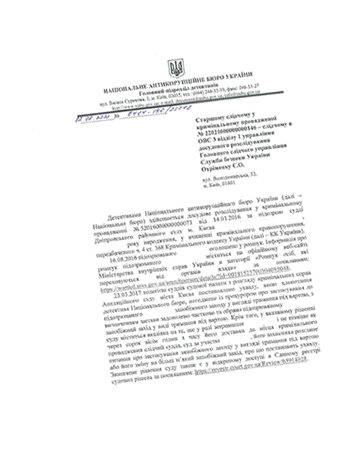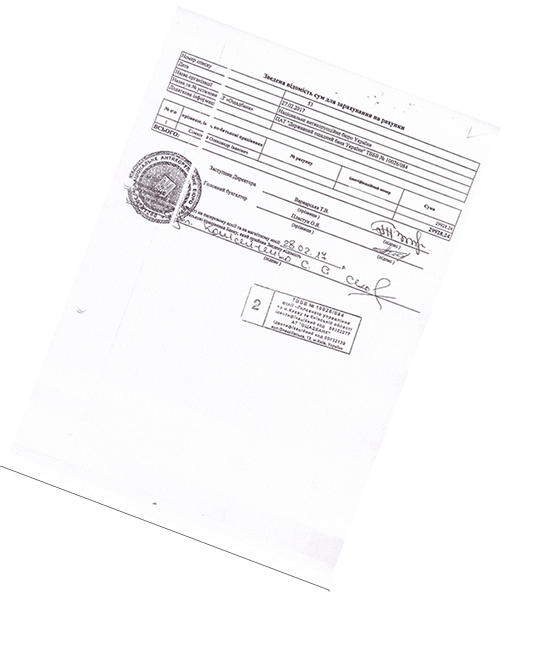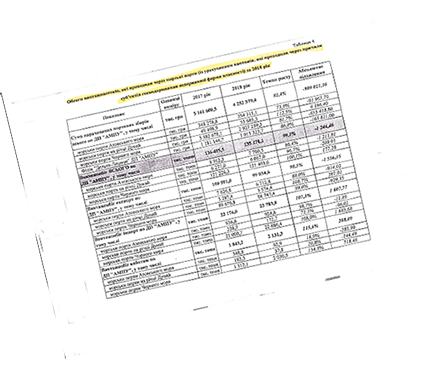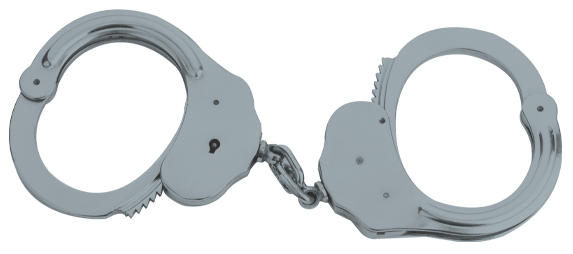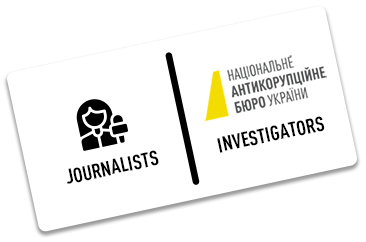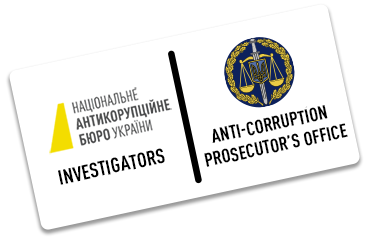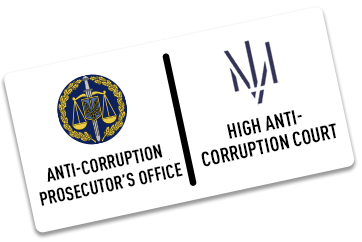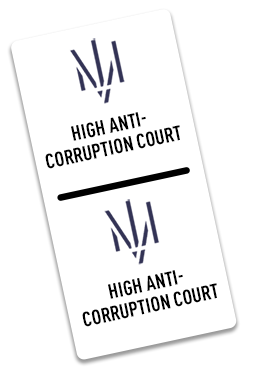The anti-corruption agencies established after the Revolution of Dignity have become a crucial element in fighting corruption, a deeply pervasive phenomenon in Ukrainian society, impeding the country's development and consistently placing Ukraine low on democracy and good governance rankings.
Ensuring the functioning and independence of anti-corruption agencies has been yet another important factor of Ukraine's drive towards the European Union, the country's relations with international partners in general, and a trigger off external financial assistance and political support.
One of the supporting instruments used by the European Union and particularly Denmark is the EU Anti-Corruption Initiative in Ukraine. Evropeyska Pravda and the EUACI have prepared this joint publication to discuss the results achieved since the establishment of the anticorruption system, its mechanisms and tasks defined for each and every agency concerned.
The article aggregates information on NACP, NABU, SAPO, HACC and ARMA – all described in a comprehensive manner in the same article.
It is important to highlight that the issue of fighting corruption is very complex, and the infrastructure in a broad sense includes not only the anti-corruption authorities but also investigative journalists, civil society, business community and the public at large as anti-corruption is about the integrity of each of us. Each and every anti-corruption institution has its own functions and objectives but they are closely intertwined and interdependent. Ukrainian society expects that all of these institutions go after top-level corruption, i.e. the so-called "untouchable" top-level corrupt officials.
Ensuring the functioning and independence of anti-corruption agencies has been yet another important factor of Ukraine's drive towards the European Union, the country's relations with international partners in general, and a trigger off external financial assistance and political support.
One of the supporting instruments used by the European Union and particularly Denmark is the EU Anti-Corruption Initiative in Ukraine. Evropeyska Pravda and the EUACI have prepared this joint publication to discuss the results achieved since the establishment of the anticorruption system, its mechanisms and tasks defined for each and every agency concerned.
The article aggregates information on NACP, NABU, SAPO, HACC and ARMA – all described in a comprehensive manner in the same article.
It is important to highlight that the issue of fighting corruption is very complex, and the infrastructure in a broad sense includes not only the anti-corruption authorities but also investigative journalists, civil society, business community and the public at large as anti-corruption is about the integrity of each of us. Each and every anti-corruption institution has its own functions and objectives but they are closely intertwined and interdependent. Ukrainian society expects that all of these institutions go after top-level corruption, i.e. the so-called "untouchable" top-level corrupt officials.
contents
NACP
National Agency on Corruption Prevention
NACP is a national executive body. The general public mostly knows the agency for running the Unified State Register of Declarations. The main task of the Agency, however, is to form an anti-corruption policy of the state. Its launch was an impressive event of 2016. The assets declared by numerous officials and politicians have become yet another proof of the need for a proactive anti-corruption system in Ukraine. Both the Register and NACP have addressed a number of challenges ever since.
While administrating the Register, NACP can call on persons to provide explanations of the origins of their assets, petition a court or a law enforcement agency in case of suspicion of corrupt behavior. This might relate to the verification of declarations or lack of compliance with the legislation on corruption prevention or violations of regulations on party financing.
While administrating the Register, NACP can call on persons to provide explanations of the origins of their assets, petition a court or a law enforcement agency in case of suspicion of corrupt behavior. This might relate to the verification of declarations or lack of compliance with the legislation on corruption prevention or violations of regulations on party financing.

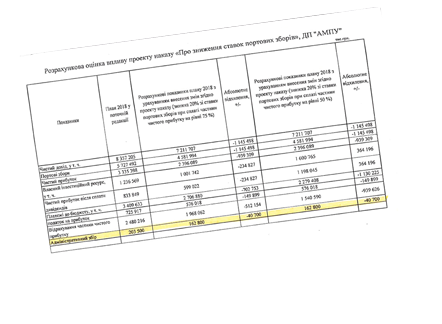
NACP is a national executive body. The general public mostly knows the agency for running the Unified State Register of Declarations. The main task of the Agency, however, is to form an anti-corruption policy of the state. Its launch was an impressive event of 2016. The assets declared by numerous officials and politicians have become yet another proof of the need for a proactive anti-corruption system in Ukraine. Both the Register and NACP have addressed a number of challenges ever since.
While administrating the Register, NACP can call on persons to provide explanations of the origins of their assets, petition a court or a law enforcement agency in case of suspicion of corrupt behavior. This might relate to the verification of declarations or lack of compliance with the legislation on corruption prevention or violations of regulations on party financing.
While administrating the Register, NACP can call on persons to provide explanations of the origins of their assets, petition a court or a law enforcement agency in case of suspicion of corrupt behavior. This might relate to the verification of declarations or lack of compliance with the legislation on corruption prevention or violations of regulations on party financing.


According to the law, the NACP's Mandate includes authority
- to develop the Anticorruption Strategy, related state programs and to coordinate their implementation;
- to conduct anti-corruption expertise of the legislation in force and draft laws;
- to prevent conflicts of interest in public servants' activities;
- to identify and eliminate corruption risks at public administrations and local governments;
- to control compliance with restrictions on political party financing;
- to provide whistleblowers with protections; and
- to administer:
- the Unified State Register of Declarations of Persons Authorized to Perform the Functions of the State or Local Government;
the Unified State Register of Persons that Committed Corruption or Corruption-Related Offenses; and
the Unified State Register of Financial Reports of Political Parties.
Outputs
from January 2020 (after NACP relaunch) as of October 2021
Declarations verified
973
1,413
Calls for explanations
1,665
Protocols compiled
104
Prescriptions compiled
317
Anti-corruption programs approved
120
Anti-corruption appraisals performed
57
Opinions on related draft laws presented
15
Public administrations (state bodies) checked
79
Whistleblowers protected (court proceedings ongoing)
How it Works
When verifying a declaration provided by a judge of a rayon court, NACP identified a number of signs of a criminal offence – deliberate declaration of false values for the amount exceeding 2,000 subsistence levels. The judge never declared the income in the form of a gift, personal apartment and apartments owned by his children. The declared data generally differ from the actual state of affairs by the amount of almost UAH 5M, which may result in criminal liability and imprisonment for up to 2 years. An opinion on signs of a criminal offence has been referred to the National Anticorruption Bureau.
“
Since the relaunch of the NACP in 2020, the Agency has been supported by a joint effort of the international community and local anticorruption activists. In accordance with its mandate, the Agency has drafted the National Anticorruption Strategy 2021-2025. Ukraine has been without such a national strategy since 2018. This document defines a clear and systematic way to move forward and improve the current anticorruption system as well as to reduce corruption risks in priority fields. The consistency and coordination of preventive activities performed by all public administrations (state bodies) is a prerequisite for a successful corruption prevention.
NABU
National Anticorruption Bureau
NABU is a law enforcement agency, which slogan is "to eradicate and prevent". The agency was created in April 2015 with the aim of preventing, detecting, eliminating and investigating top-level corruption in the country.
NABU cooperates with the Specialized Anti-Corruption Prosecutor's Office at the pre-trial investigation has specific jurisdiction over top corruption of both legal entities and individuals.
NABU cooperates with the Specialized Anti-Corruption Prosecutor's Office at the pre-trial investigation has specific jurisdiction over top corruption of both legal entities and individuals.
NABU has jurisdiction over the following criminal offences
- Property misappropriation,embezzlement and illicit appropriation of property owned by an enterprise, institution or organization;
- Legalization of income acquired through criminal ways (money laundering);
- Misuse of budgetary funds, budgetary expenses or credits (UAH 1,135,000 as of 01.01.2021);
- Issuance of regulatory and legal acts reducing the budgetary accruals or increasing budgetary expenses while contradicting the current law;
- Bribery of an employee of an enterprise, institution or organization;
- Abuse of office.
Outputs of NABU work
as of June 2021
Current proceedings
879
397
Charges served
584
(Persons) accused
How it Works
NABU has finalized a pre-trial investigation regarding the losses of almost UAH 103M inflicted upon PJSC "Ukrzaliznytsya" when procuring diesel fuel. On 14 July, the Bureau and SAPO disclosed the investigation case materials to both a defendant and defense counsel.
The investigation revealed that in early January 2017 a branch of the railway company "Ukrzaliznytsya" concluded a number of agreements with a company related to it under its umbrella for the amount of 55K tons of diesel fuel to be procured for a favourable price.
Eventually, the parties of the corrupt scheme signed a number of additional agreements unreasonably increasing the value of diesel fuel for PJSC "Ukrzaliznytsya" by 10%.
The investigation revealed that in early January 2017 a branch of the railway company "Ukrzaliznytsya" concluded a number of agreements with a company related to it under its umbrella for the amount of 55K tons of diesel fuel to be procured for a favourable price.
Eventually, the parties of the corrupt scheme signed a number of additional agreements unreasonably increasing the value of diesel fuel for PJSC "Ukrzaliznytsya" by 10%.
“
The phenomenon of NABU is not only about it being the first law enforcement body in Ukraine whose leadership and staff have been selected through a transparent, merit-based and competitive process or that it is the first state body in the country to receive a full compliance award for building an anti-bribery management system inside its own organisation or that it is at the forefront of digital transformations … or that its leadership refused to accept a five million-dollar bribe (in cash!)… The uniqueness of NABU is about it being resilient to unprecedented attacks to destroy since its very first days of operation and planting the hope in all of us that corruption could be and should be fought against no matter how powerful, shameless and dangerous it is.
SAPO
Specialized Anti-Corruption Prosecutor's Office
SAPO is an independent structural unit of the Prosecutor's General Office of Ukraine. It closely cooperates with NABU by upholding public prosecution in criminal proceedings investigated by the Bureau. SAPO was established in September 2015.
The Head of the Specialized Anti-Corruption Prosecutor's Office is subordinated directly to the Prosecutor General of Ukraine and is his/her deputy. At the same time, the current legislation includes a set of guarantees to prevent undue pressure on SAPO. Specifically, the Prosecutor General, his/her first deputy and other deputies are not entitled to provide any instructions for SAPO prosecutors, nor can they have any other impact on SAPO exercising its authority.
In addition to prosecution at the High Anticorruption Court, SAPO has a number of other important functions.
The Head of the Specialized Anti-Corruption Prosecutor's Office is subordinated directly to the Prosecutor General of Ukraine and is his/her deputy. At the same time, the current legislation includes a set of guarantees to prevent undue pressure on SAPO. Specifically, the Prosecutor General, his/her first deputy and other deputies are not entitled to provide any instructions for SAPO prosecutors, nor can they have any other impact on SAPO exercising its authority.
In addition to prosecution at the High Anticorruption Court, SAPO has a number of other important functions.
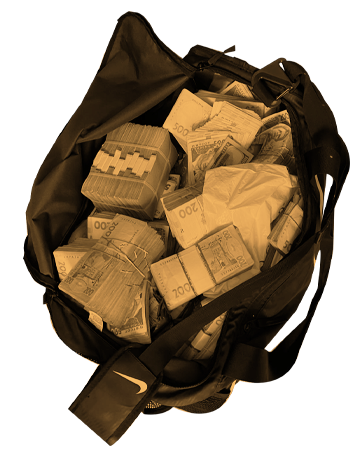
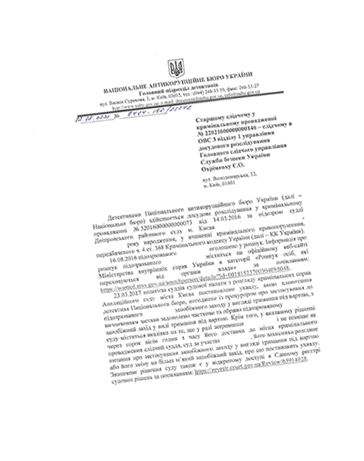
SAPO is an independent structural unit of the Prosecutor's General Office of Ukraine. It closely cooperates with NABU by upholding public prosecution in criminal proceedings investigated by the Bureau. SAPO was established in September 2015.
The Head of the Specialized Anti-Corruption Prosecutor's Office is subordinated directly to the Prosecutor General of Ukraine and is his/her deputy. At the same time, the current legislation includes a set of guarantees to prevent undue pressure on SAPO. Specifically, the Prosecutor General, his/her first deputy and other deputies are not entitled to provide any instructions for SAPO prosecutors, nor can they have any other impact on SAPO exercising its authority.
In addition to prosecution at the High Anticorruption Court, SAPO has a number of other important functions.
The Head of the Specialized Anti-Corruption Prosecutor's Office is subordinated directly to the Prosecutor General of Ukraine and is his/her deputy. At the same time, the current legislation includes a set of guarantees to prevent undue pressure on SAPO. Specifically, the Prosecutor General, his/her first deputy and other deputies are not entitled to provide any instructions for SAPO prosecutors, nor can they have any other impact on SAPO exercising its authority.
In addition to prosecution at the High Anticorruption Court, SAPO has a number of other important functions.


SAPO's competencies
- Overseeing NABU's compliance with the current legislation in the course of conducting operative investigation activities and pre-trial investigation;
- Ensuring compliance with the current legislation when accepting, registering, reviewing and deciding on cases and notifications of criminal offenses as well as timely inputs into the Unified Register of Pre-Trial Investigations;
- Ensuring fast, full and impartial investigation of criminal offences by NABU, as well as appealing judicial holdings in pre-trial investigations and trial hearings;
- Upholding public prosecution in criminal proceedings investigated by NABU;
- Ensuring compensation of damages inflicted by criminal offences;
- Ensuring the application of appropriate legal procedure to each party of a criminal proceeding;
- Representing interests of citizens' or state in court in cases provided for by the Law of Ukraine "On the prosecution" and specific corruption or corruption-related offences; and
- Providing international cooperation under the mandate of SAPO.
Outputs of SAPO work
as of October 2021
current proceedings
818
356
indictments were brought to courts
55
sentences came into force
How it Works
In March 2021, SAPO prosecutors referred an indictment against the President of the Kharkiv District Administrative Court accused of illicit gains to the High Anticorruption Court. The official concerned has been accused of committing a crime defined by Section 3, Article 369 of the Criminal Code of Ukraine ("A proposal, promise or actual illicit gain for an official").
According to the materials of the investigation, the Head of the Kharkiv District Administrative Court demanded a judge of the same court to render a judgment in a specific administrative case on land dispute in favour of a certain commercial company. On September 21, 2020, prior to a related court session, the official concerned was apprehended by joint efforts of NABU, Security Service of Ukraine and SAPO while accepting a bribe. She was served a charge the following day.
The pre-trial investigation lasted from July 2020 to January 2021, and the case is currently being heard by HACC.
According to the materials of the investigation, the Head of the Kharkiv District Administrative Court demanded a judge of the same court to render a judgment in a specific administrative case on land dispute in favour of a certain commercial company. On September 21, 2020, prior to a related court session, the official concerned was apprehended by joint efforts of NABU, Security Service of Ukraine and SAPO while accepting a bribe. She was served a charge the following day.
The pre-trial investigation lasted from July 2020 to January 2021, and the case is currently being heard by HACC.
“
SAPO is an important link in investigations of corruption offenses. No wonder it has constantly been repelling attacks against its independence. TSAPO has been short of permanent leadership for more than a year so far, and the distressful competition is yet to yield any results. Mr Maxym Gryshchuk, the Acting Head of SAPO was deliberately deprived of his status as a Deputy Prosecutor General. This deprives SAPO of its authority to sign charges on criminal offences committed by judges and Members of the Ukrainian Parliament. Guaranteeing procedural and institutional independence of SAPO is a key objective to be fulfilled in order to ensure efficient investigations of corruption and bringing guilty to justice.
HACC
High Anticorruption Court
HACC's objective is to administer justice in accordance with norms and procedures defined by law. Its overall purpose is to protect both society and the state from corruption and corruption-related offences.
The court emerged in September 2019. HACC is composed of the Court of First Instance and the Chamber of Appeals. The first instance considers both criminal cases and motions, complaints and statements during the pre-trial investigation which are being decided by so-called investigating judges. The Chamber of Appeals deals with submissions on the determination of jurisdiction, appeals against judgments of the first instance and appeals against decisions of investigating judges.
HACC is composed of 38 judges. The court's jurisdiction is mostly similar to the National Anticorruption Bureau of Ukraine and covers criminal offenses investigated by the NABU.
The court emerged in September 2019. HACC is composed of the Court of First Instance and the Chamber of Appeals. The first instance considers both criminal cases and motions, complaints and statements during the pre-trial investigation which are being decided by so-called investigating judges. The Chamber of Appeals deals with submissions on the determination of jurisdiction, appeals against judgments of the first instance and appeals against decisions of investigating judges.
HACC is composed of 38 judges. The court's jurisdiction is mostly similar to the National Anticorruption Bureau of Ukraine and covers criminal offenses investigated by the NABU.
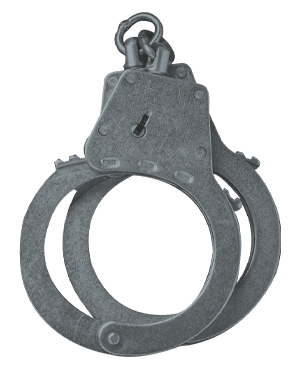
HACC's objective is to administer justice in accordance with norms and procedures defined by law. Its overall purpose is to protect both society and the state from corruption and corruption-related offences.
The court emerged in September 2019. HACC is composed of the Court of First Instance and the Chamber of Appeals. The first instance considers both criminal cases and motions, complaints and statements during the pre-trial investigation which are being decided by so-called investigating judges. The Chamber of Appeals deals with submissions on the determination of jurisdiction, appeals against judgments of the first instance and appeals against decisions of investigating judges.
HACC is composed of 38 judges. The court's jurisdiction is mostly similar to the National Anticorruption Bureau of Ukraine and covers criminal offenses investigated by the NABU.
The court emerged in September 2019. HACC is composed of the Court of First Instance and the Chamber of Appeals. The first instance considers both criminal cases and motions, complaints and statements during the pre-trial investigation which are being decided by so-called investigating judges. The Chamber of Appeals deals with submissions on the determination of jurisdiction, appeals against judgments of the first instance and appeals against decisions of investigating judges.
HACC is composed of 38 judges. The court's jurisdiction is mostly similar to the National Anticorruption Bureau of Ukraine and covers criminal offenses investigated by the NABU.

Cases reviewed by HACC
- Misappropriation of State property by abuse of office;
- Abuse of influence, power or office;
- Misuse of the budgetary funds;
- Making budgetary expenditures or providing loans without established budget allocations
- The promise, offering or giving of an undue advantage to an official and receiving such a benefit by an official;
- Bribery of an auditor, notary, assessors etc.;
- Theft, damage, misappropriation or extortion of documents, stamps and seals by abuse of office;
- Violation of the established rules on turnover of narcotics, psychotropic substances and their equivalents by abuse of office;
- Theft, extortion, misappropriation of weapons, explosives or radioactive materials by abuse of office.
Results of HACC work
as of the beginning of October 2021
(5 members of Parliament/Government, 14 judges, 6 defense lawyers, 1 prosecutor, 3 heads of state enterprises)
49
sentences
HACC as a first instance court delivered
58
individuals
The sentences concern
How it Works
In October 2020, HACC found a judge of the Odesa Oblast Commercial Court guilty of committing a criminal offence and sentenced him/her to 9 years of imprisonment with the confiscation of property. The defendant was deprived of the right to hold judicial positions and the right to be a public servant for 3 years. The court also ruled on a special forfeiture and decided to confiscate UAH 250.000 from the defendant for the benefit of the state.
The same judge was accused of extorting and receiving an undue advantage of almost UAH 570.000 for delivering a court decision in favor of the plaintiff in a commercial case regarding recovering of insurance payment of UAH 2.3 million.
The same judge was accused of extorting and receiving an undue advantage of almost UAH 570.000 for delivering a court decision in favor of the plaintiff in a commercial case regarding recovering of insurance payment of UAH 2.3 million.
“
The most popular statement in any discussion related to anti-corruption agencies is the claim, "Where are the imprisonment sentences?". Yet another matter is that the general public will never be satisfied with the number of convictions. If there are 40 convictions, people will demand 100, and if there are 100, people will demand 1,000. However, the administration of justice has little in common with the "Faster, Higher and Stronger" Olympic motto. The major task of HACC is to deliver justice through a fair and impartial deliberation over the materials of a criminal case. The two-years of HACC's practice proves the court is on the right track.
ARMA
Asset Tracing and Management Agency
The full name of this authority is the National Agency of Ukraine for Finding, Tracing and Management of Assets Derived From Corruption and Other Crimes.
ARMA is a national executive authority with a special status. It traces assets at the request of detectives, investigators, pre-trial investigative agencies, prosecutors and courts. The main task of ARMA is to trace, arrest, seize and manage assets derived from corruption.
ARMA manages a wide range of seized assets (from grain and apparel to luxury cars), including its resale via electronic auctions. In cases provided for by the law, the Agency enforces court decisions on assets forfeiture and their recovery to the state budget. Recovery of illicit assets derived from corrupted officials is a crucial element of the anti-bribery practices which responds to the public demand for justice. However, since the establishment of the National Agency only one decision on confiscation and several more decisions on special confiscation of assets have been enforced. Thus, the main way to manage the seized assets is to transfer them to managers to preserve its economic value.
ARMA is a national executive authority with a special status. It traces assets at the request of detectives, investigators, pre-trial investigative agencies, prosecutors and courts. The main task of ARMA is to trace, arrest, seize and manage assets derived from corruption.
ARMA manages a wide range of seized assets (from grain and apparel to luxury cars), including its resale via electronic auctions. In cases provided for by the law, the Agency enforces court decisions on assets forfeiture and their recovery to the state budget. Recovery of illicit assets derived from corrupted officials is a crucial element of the anti-bribery practices which responds to the public demand for justice. However, since the establishment of the National Agency only one decision on confiscation and several more decisions on special confiscation of assets have been enforced. Thus, the main way to manage the seized assets is to transfer them to managers to preserve its economic value.
Major areas of ARMA's activities
Finding and Tracing of Assets
- Undertaking activities on finding and tracing of assets;
- Ensuring international cooperation with appropriate foreign counterparts and international organizations authorized to find and trace assets;
- Representing interests of Ukraine in foreign jurisdictions in cases concerning the recovery of assets derived from corruption and other crimes in Ukraine.
- Transferring assets for the management according to an appropriate agreement;
- Disposing of assets with further transfer of funds to deposit state bank account till final court decision in a related criminal proceeding;
- Petitioning the court with legal claims challenging the legality of specific regulatory and legal acts, individual act;
- Establishing and maintaining the Unified State Register of Assets Arrested in Criminal Proceedings.
- Drafting laws, legal acts, and bylaws of ARMA;
- Concluding international interagency agreements on cooperation with foreign agencies authorized to carry out activities within ARMA field;
- Providing clarifications, guidelines and consultations for investigators, detectives, prosecutors and judges regarding ARMA's scope of activities.
Outputs of ARMA activities
as of August 2021
*excluding taxes paid by private managers
**including UAH 25 million as interest payments accrued since the beginning of the year
**including UAH 25 million as interest payments accrued since the beginning of the year
over UAH
billion
transferred to private management
1
assets worth
million
placed on the deposit account**
605
UAH
around UAH
recovered to the budget*
million
62
How it Works
At the request of law enforcement agencies the court seizes a number of commercial real estate objects and transferred them to ARMA's management. The National Agency announces a competition and selects a management company with further conclusion of a contract for a certain period.
The company insures the asset, restores some objects which need to be renovated for correct functioning, maintains them and receives income from the commercial use of real estate. According to the agreement with ARMA, it reimburses the expenses using the income received from asset management. The reward and revenue to the state budget also derives from the mentioned income. As a result, the state does not spend resources on preserving seized property until the final court decision or lifting the arrest, but instead receives income from management.
The company insures the asset, restores some objects which need to be renovated for correct functioning, maintains them and receives income from the commercial use of real estate. According to the agreement with ARMA, it reimburses the expenses using the income received from asset management. The reward and revenue to the state budget also derives from the mentioned income. As a result, the state does not spend resources on preserving seized property until the final court decision or lifting the arrest, but instead receives income from management.
“
By establishing ARMA, Ukraine formed a formidable basis for asset recovery. The next step is the approval of the Asset Recovery National Strategy as a key strategic document. The Agency's authorities have to be extended as well. Specifically, a list of assets the Agencyshould be entitled to sell prior to a court judgment has to be defined, and planning before asset arrest for more efficient management should be implemented. By having asset management efficiency improved, Ukraine will be able to increase its gains and invest it into the fight against corruption and organized crime.
Media and Public Sector
It's not a secret that activities implemented by anti-corruption agencies face significant resistance in Ukraine from those for whom they pose the highest threat. Blocking performance of these agencies, discreditation campaigns in the media, legal challenges of their activity – this list of impediments is by far incomplete. Under these circumstances, it is important for the anti-corruption system to obtain support and assistance from investigative journalism and civil society.
Investigative journalists not only oppose the attempts to render the anticorruption system and its efforts back to nothingness but also provide information on alleged corruption. For instance, this June, NABU initiated a pre-trial investigation on alleged failure to declare specific information by a Member of the Parliament, as disclosed by the "Skhemy" TV Show. The Member of the Ukrainian Parliament "forgot" to mention a villa in Spain in his declaration.
Similarly, the Anti-Corruption Action Centre approached the National Anticorruption Bureau with a notice of a crime regarding alleged declaration of false information submitted by the first deputy of one of the Cabinet Members. The difference between the declared property and its market value was more than UAH 1.6M. NABU has started an investigation into these facts.
Specialized public organizations are also proactive advocates of norms facilitating anti-corruption efforts and ensuring the most efficient use of capacity to counter corruption.
Investigative journalists not only oppose the attempts to render the anticorruption system and its efforts back to nothingness but also provide information on alleged corruption. For instance, this June, NABU initiated a pre-trial investigation on alleged failure to declare specific information by a Member of the Parliament, as disclosed by the "Skhemy" TV Show. The Member of the Ukrainian Parliament "forgot" to mention a villa in Spain in his declaration.
Similarly, the Anti-Corruption Action Centre approached the National Anticorruption Bureau with a notice of a crime regarding alleged declaration of false information submitted by the first deputy of one of the Cabinet Members. The difference between the declared property and its market value was more than UAH 1.6M. NABU has started an investigation into these facts.
Specialized public organizations are also proactive advocates of norms facilitating anti-corruption efforts and ensuring the most efficient use of capacity to counter corruption.


It's not a secret that activities implemented by anti-corruption agencies face significant resistance in Ukraine from those for whom they pose the highest threat. Blocking performance of these agencies, discreditation campaigns in the media, legal challenges of their activity – this list of impediments is by far incomplete. Under these circumstances, it is important for the anti-corruption system to obtain support and assistance from investigative journalism and civil society.
Investigative journalists not only oppose the attempts to render the anticorruption system and its efforts back to nothingness but also provide information on alleged corruption. For instance, this June, NABU initiated a pre-trial investigation on alleged failure to declare specific information by a Member of the Parliament, as disclosed by the "Skhemy" TV Show. The Member of the Ukrainian Parliament "forgot" to mention a villa in Spain in his declaration.
Similarly, the Anti-Corruption Action Centre approached the National Anticorruption Bureau with a notice of a crime regarding alleged declaration of false information submitted by the first deputy of one of the Cabinet Members. The difference between the declared property and its market value was more than UAH 1.6M. NABU has started an investigation into these facts.
Specialized public organizations are also proactive advocates of norms facilitating anti-corruption efforts and ensuring the most efficient use of capacity to counter corruption.
Investigative journalists not only oppose the attempts to render the anticorruption system and its efforts back to nothingness but also provide information on alleged corruption. For instance, this June, NABU initiated a pre-trial investigation on alleged failure to declare specific information by a Member of the Parliament, as disclosed by the "Skhemy" TV Show. The Member of the Ukrainian Parliament "forgot" to mention a villa in Spain in his declaration.
Similarly, the Anti-Corruption Action Centre approached the National Anticorruption Bureau with a notice of a crime regarding alleged declaration of false information submitted by the first deputy of one of the Cabinet Members. The difference between the declared property and its market value was more than UAH 1.6M. NABU has started an investigation into these facts.
Specialized public organizations are also proactive advocates of norms facilitating anti-corruption efforts and ensuring the most efficient use of capacity to counter corruption.


The EU Anti-Corruption Initiative (EUACI) is the comprehensive EU anti-corruption program in Ukraine financed by the EU and Denmark and implemented by the Ministry of Foreign Affairs of Denmark. The EUACI began in 2017 and has since established itself as a flagship program contributing to reducing corruption in Ukraine at the national and local level through the empowerment of citizens, local authorities, civil society, businesses, and state institutions.
Background
© 2020, Європейська правда, eurointegration.com.ua

